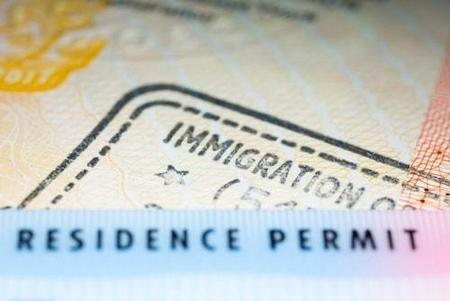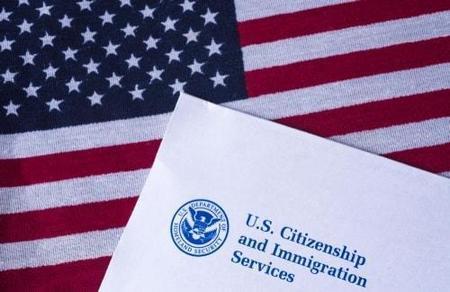Recent Blog Posts
When Canines Attack: Taking Action After an Illinois Dog Bite
 Many people enjoy the company of a four-legged friend. It is no wonder that dogs are called man’s best friend, since most canines are very friendly and make great companions. Some dogs, however, are more hostile than others. Studies show that more than 4.5 million people are bitten by dogs every year throughout the U.S., and more than 800,000 people require medical treatment for dog bite injuries. Fortunately, the state of Illinois allows victims to pursue compensation for dog bite injuries.
Many people enjoy the company of a four-legged friend. It is no wonder that dogs are called man’s best friend, since most canines are very friendly and make great companions. Some dogs, however, are more hostile than others. Studies show that more than 4.5 million people are bitten by dogs every year throughout the U.S., and more than 800,000 people require medical treatment for dog bite injuries. Fortunately, the state of Illinois allows victims to pursue compensation for dog bite injuries.
Dog Bite Injuries and Infections
The American Veterinary Medical Association (AVMA) states that children are more likely to be bitten than adults, because they often do not know the warning signs that a dog may be hostile or dangerous. When children suffer a dog bite, they are more likely to sustain serious injuries. However, dog bites can seriously harm people of any age, and injuries can range from a small scratch or bruise to deep lacerations and broken bones. In addition to these injuries, any dog bite that breaks the skin can also lead to an infection or illness if it is not properly treated. Common infections that occur from dog bites include Pasteurella, MRSA, tetanus and in some cases, even rabies.
What Crimes Would Cause an Immigrant to Be Deported?
 The immigration process can be long and complicated. However, if an individual who is trying to immigrate to the United States commits certain crimes, he or she might be deported. Even if the immigrant possesses a green card, he or she is subject to deportation if he or she violates U.S. immigration laws. If there is substantial evidence that a crime has been committed and the person was convicted, an immigrant can be subject to removal proceedings. It is important to understand the immigration criminal defense proceedings if you or a loved is charged with a crime that is classified as “deportable.”
The immigration process can be long and complicated. However, if an individual who is trying to immigrate to the United States commits certain crimes, he or she might be deported. Even if the immigrant possesses a green card, he or she is subject to deportation if he or she violates U.S. immigration laws. If there is substantial evidence that a crime has been committed and the person was convicted, an immigrant can be subject to removal proceedings. It is important to understand the immigration criminal defense proceedings if you or a loved is charged with a crime that is classified as “deportable.”
Types of Crimes that Warrant Deportation
Immigrants face the risk of being deported if they are convicted of specific types of crime. A “crime of moral turpitude” (CMT) or is not defined very well under U.S. immigration law. It is important to note, however, the Department of State states that the typical conditions of a moral turpitude crime include “larceny, fraud, and intent to hurt persons or things.” Crimes that involve theft and dishonesty are considered this type of crime. Other examples include assault with intent to kill or rob someone; aggravated DUI or DWI; and spousal abuse.
Is a Trucking Company Liable for Truck Accident Injuries in Illinois?
According to the American Trucking Association, there were approximately 36 million large trucks registered and used for business purposes in 2017, with more than 1 million for-hire and private truck carriers operating in the United States. Trucking is a fairly large industry, but it can be dangerous. The National Highway Traffic Safety Administration (NHTSA) reports that there were more than 4,600 large trucks involved in fatal crashes and approximately 107,000 involved in injury crashes in 2017. When a truck gets into an accident, it makes sense to first blame the truck driver. In some cases, the trucking company for which the driver works can also be held responsible for a truck accident.
Hiring Unqualified Drivers
All drivers of large trucks have to meet certain requirements and have specific qualifications and endorsements to legally drive a big rig. Drivers must hold a commercial driver’s license (CDL) with the proper endorsements to drive a commercial motor vehicle (CMV). Drivers must also be certified that they are medically sound to drive a CMV. If a trucking company knows that a driver does not have a CDL or the appropriate endorsements, has medical issues, or does not have adequate training or experience, the company can be held liable for injuries or damages sustained in a truck accident.
What You Need to Know About Child Adoption in Illinois
 The process of obtaining legal parental rights over a child that is not your own is known as adoption. Once you have done what is required and successfully completed the process, you will establish a legal family relationship between yourself and the child you are adopting. As an adoptive parent, you will have the same rights, duties, and obligations to the child as the child’s biological parents would have.
The process of obtaining legal parental rights over a child that is not your own is known as adoption. Once you have done what is required and successfully completed the process, you will establish a legal family relationship between yourself and the child you are adopting. As an adoptive parent, you will have the same rights, duties, and obligations to the child as the child’s biological parents would have.
Who Can Adopt a Child?
Under Illinois law, basically, anyone of age can adopt a child provided they follow the law and meet the adoption requirements. So, it does not matter whether you are single, married, divorced, or even a same-sex couple; you can adopt—again, assuming you meet all the other requirements.
For example, if you are married, then both you and your spouse must jointly file an adoption petition. This requirement, however, does not apply if you have been separated for more than one year.
How Can I Sponsor My Relative for Permanent Residency in the United States?
 Immigration is a hot topic these days, given recent government changes to the laws and increased enforcement at the United States/Mexico border. Many U.S. citizens have family members who wish to join them here. Any U.S. citizen can help a relative become a legal permanent resident of the United States by obtaining a “Green Card.” To accomplish this, a person must sponsor his or her relative and prove that he or she has enough income or assets to support the relative once he or she enters the United States. It is important to note that if the immigrant qualifies, he or she can apply for citizenship later. If you are considering sponsoring a loved one, you need to know the necessary legal steps to take.
Immigration is a hot topic these days, given recent government changes to the laws and increased enforcement at the United States/Mexico border. Many U.S. citizens have family members who wish to join them here. Any U.S. citizen can help a relative become a legal permanent resident of the United States by obtaining a “Green Card.” To accomplish this, a person must sponsor his or her relative and prove that he or she has enough income or assets to support the relative once he or she enters the United States. It is important to note that if the immigrant qualifies, he or she can apply for citizenship later. If you are considering sponsoring a loved one, you need to know the necessary legal steps to take.
Requirements for Sponsorship
Obtaining permanent resident status provides a family member with the privilege of living and working in the United States permanently. The petitioner is required to show evidence to prove the familial relationship to the person for whom he or she is sponsoring. In order to sponsor a relative for permanent residency in the United States, there are several requirements that must be met:
What if My Loved One Was Killed in an Illinois Car Accident?
One of the most difficult and traumatic experiences a person can go through is grieving the death of a loved one. When that death is due to the recklessness of another individual, it can be even more devastating for the family. While many car accidents result in property damage or injuries, far too many result in the death of one or more people. According to the National Highway Traffic Safety Administration (NHTSA), there were more than 35,000 traffic fatalities that occurred in the United States in 2017. Although nothing can bring back your loved one, Illinois does allow the families of wrongful death victims to file claims to help mitigate some of the financial burdens that an unexpected death can cause.
Filing a Wrongful Death Lawsuit
Wrongful death claims exist to allow a deceased person’s family members to claim damages that the deceased individual would have been able to claim in a personal injury lawsuit if he or she were alive. Illinois law allows surviving spouses and minor children of the deceased to file a wrongful death claim and recover damages, though this right can also be given to an adult child of the deceased or the parents of a deceased minor.
What Is an Adjustment of Status in the Immigration Process?
 Immigration has been in the news a lot lately, especially stories about the crisis at the United States/Mexico border. Although a lot of migrants want to come to the United States, it is crucial they learn the proper terms and procedures for obtaining U.S. citizenship. Adjustment of status is the legal process for applying for permanent resident status when a person is in the United States. This is also known as applying for a Green Card. A person may obtain a Green Card without having to return to his or her home country to complete visa processing. However, if someone is outside of the United States, he or she must obtain a visa through consular processing abroad.
Immigration has been in the news a lot lately, especially stories about the crisis at the United States/Mexico border. Although a lot of migrants want to come to the United States, it is crucial they learn the proper terms and procedures for obtaining U.S. citizenship. Adjustment of status is the legal process for applying for permanent resident status when a person is in the United States. This is also known as applying for a Green Card. A person may obtain a Green Card without having to return to his or her home country to complete visa processing. However, if someone is outside of the United States, he or she must obtain a visa through consular processing abroad.
Steps for Adjustment of Status
There are several things a person must do before receiving a Green Card. The following are the main steps in the Adjustment of Status process:
How Is Intellectual Property Divided in Illinois Divorce?
 People going through divorce usually worry about how assets such as a house, car, or retirement accounts will be divided when the divorce is final. With information and technology becoming increasingly intertwined in evolving societal norms, however, intellectual property is equally becoming an important category of assets owned by a married couple. Intellectual property includes things such as copyrights, trademarks, and patents.
People going through divorce usually worry about how assets such as a house, car, or retirement accounts will be divided when the divorce is final. With information and technology becoming increasingly intertwined in evolving societal norms, however, intellectual property is equally becoming an important category of assets owned by a married couple. Intellectual property includes things such as copyrights, trademarks, and patents.
Is Intellectual Property Marital Property?
Illinois law defines marital property as property, including assets and debts, the divorcing couple acquired after getting married. There are a few exceptions, but this law is broad enough to include in it nearly all property that a couple acquires after marriage. Conversely, all property acquired prior to marriage is not considered marital property, except in certain special circumstances.
Whether intellectual property is marital property depends first, on whether it was acquired before or after marriage. If the intellectual property was acquired after marriage, then there is a presumption it is marital property. However, like all presumptions, a spouse who believes it the intellectual property is not marital property can present evidence to overcome the presumption.
Dog Bite Warning Signs and Prevention Tips

Dogs continue to be one of the most popular types of household pets for many reasons. Typically, dogs have a good-natured, people-loving demeanor, which is why they are common family pets. Even still, dogs are animals, and people often forget that they can also be unpredictable and dangerous at times. According to the Centers for Disease Control and Prevention (CDC), over 4.5 million individuals are bitten by dogs every year and more than 800,000 of those people seek medical treatment for their injuries. Unfortunately, children make up a rather large percentage of bite victims, around half, according to the American Veterinary Medical Association (AVMA).
Why Do Dogs Bite?
There are a number of reasons why a dog might bite a human. Most of the time, when a dog bites someone, it is because the dog is reacting to something. The only way dogs can communicate with humans is through physical actions. Biting is often a dog’s response to a stressful or scary situation. Animals sometimes bite if they feel threatened by something. Dogs can also bite because they are sick or in pain due to an illness or injury.
What to Do If There Is Abuse During a Child Visitation Exchange
 After a divorce is made final, and sometimes even before that, an Illinois family court will enter an order regarding the allocation of parental responsibilities. This order controls how parental responsibilities are shared between the divorcing couple. One of these responsibilities is time shared with a child.
After a divorce is made final, and sometimes even before that, an Illinois family court will enter an order regarding the allocation of parental responsibilities. This order controls how parental responsibilities are shared between the divorcing couple. One of these responsibilities is time shared with a child.
Determining Parenting Time
If a divorcing couple has not agreed on a parenting schedule, the court will determine how and when visitation will take place in the best interest of the child. The court will do so relying on expert opinions and considering several factors, including the following:
- Each parent’s wishes;
- Wishes of the child;
- School and extracurricular needs of the child;
- Distance between the parents; and
- Work schedules for the parents.
Exchanging Children for Parenting Time
In situations where the divorce is amicable and the divorced parents get along well, handing over or picking up a child during parental time is done seamlessly with the parents agreeing how it will be done each time. If such is not the case and the parents have to follow a court ordered schedule, then the visitation exchange is often done curbside, meaning right outside the receiving parent’s residence. If the relationship between the parents is poor, a court may order drop-offs and pickups to take place at some other location, such as a school, shopping area, park, or gas station to minimize the likelihood of a problem.
 English,
English,
 Spanish,
Spanish,
 Polish,
Polish,
 Urdu
Urdu















 Make a Payment
Make a Payment



